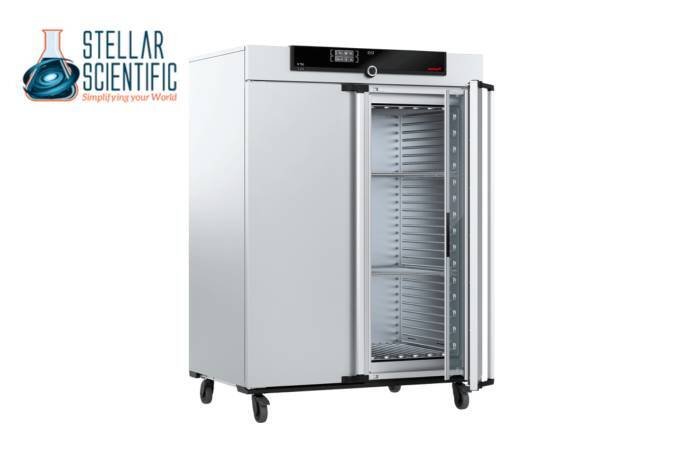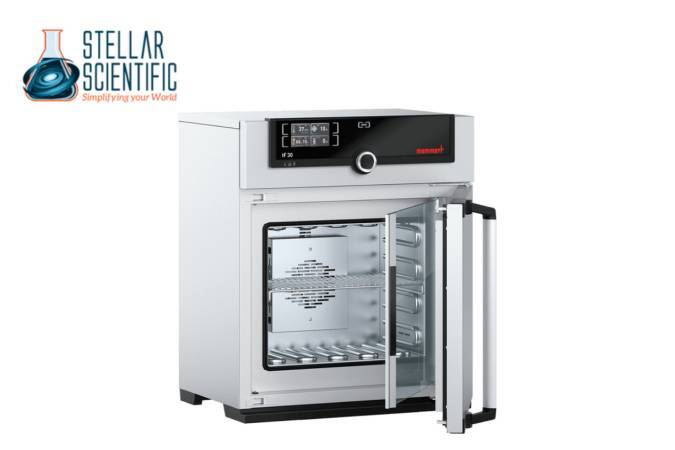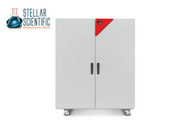Forced Air Incubators for Precise and Efficient Temperature Control
22nd Aug 2025
Temperature control is one of the most critical factors in biological and microbiological research. Whether culturing cells, growing bacteria, or conducting chemical reactions, maintaining a stable and uniform temperature is essential for producing accurate and repeatable results. For many laboratories, forced air incubators are the preferred solution for achieving efficient and consistent temperature control.
Unlike gravity convection models, forced air incubators use a built-in fan to circulate air within the chamber actively. This results in a more uniform internal environment, reduced recovery times after door openings, and faster heating performance, all crucial benefits for research and clinical laboratories.
What Is a Forced Air Incubator?
A forced air incubator is a temperature-controlled chamber designed for cultivating microbial cultures, storing samples, and conducting various biological experiments. It utilizes an internal fan to continuously move heated air throughout the chamber, ensuring even temperature distribution from top to bottom and corner to corner.
This active airflow reduces hot and cold spots inside the chamber, making forced air incubators ideal for applications that require precise temperature uniformity and faster temperature recovery.

Key Features and Advantages of Forced Air Incubators
1. Superior Temperature Uniformity
In many lab processes, even small variations in temperature can influence the outcome of an experiment. Forced air incubators deliver outstanding temperature uniformity by constantly circulating heated air across the chamber. This ensures that all samples, regardless of location, are exposed to the same conditions, improving consistency and reliability across experiments.
2. Faster Heating and Recovery Times
Opening the door of an incubator disrupts internal conditions. Gravity convection incubators can take time to recover, delaying the return to set temperatures. Forced air incubators, however, respond rapidly to changes. The circulating fan quickly distributes heat, returning the chamber to the desired temperature much faster. This rapid recovery helps protect sensitive cultures and maintain experimental integrity.
3. Enhanced Efficiency for High-Volume Labs
Forced air incubators are particularly valuable in busy laboratories that frequently open incubator doors, handle multiple sample sets, or perform time-sensitive experiments. The faster thermal recovery and even distribution of temperature make them highly efficient tools for high-throughput environments.
4. Broad Temperature Range for Multiple Applications
Most forced air incubators offer a wide temperature range, typically from ambient +5°C to 65°C or higher, making them suitable for a variety of research needs. Whether used for microbiological growth, chemical reaction incubation, or sample drying, these incubators are versatile enough to support many lab protocols.
5. Digital Controls for Precision and Repeatability
Modern forced air incubators feature user-friendly digital interfaces that allow precise control of temperature settings. Researchers can program exact setpoints, monitor real-time performance, and maintain records of temperature history. These features not only support experimental accuracy but also help meet compliance requirements for regulated labs.
6. Built-In Safety and Alarm Systems
Safety is a critical consideration in any lab environment. Forced air incubators often include over-temperature protection systems, audible and visual alarms, and automatic shutoff mechanisms to prevent overheating or system failure. These safeguards help protect both users and valuable samples.
Applications of Forced Air Incubators in Research and Clinical Labs
Microbiology
In microbiology labs, forced air incubators are commonly used to cultivate bacteria, yeast, and fungi. Uniform temperature control supports the reproducible growth of microbial colonies, which is essential for antibiotic testing, pathogen studies, and food safety research.
Cell and Tissue Culture
For cell culture applications, consistent temperature and humidity levels are vital. Forced air incubators ensure stable conditions throughout the chamber, which is crucial for cell viability and experimental reproducibility, especially in long-term studies.
Pharmaceutical and Biotech Research
Pharmaceutical laboratories use forced air incubators to test drug stability, perform accelerated aging studies, and carry out biochemical assays. The rapid temperature recovery and high reliability make these incubators ideal for time-sensitive protocols.
Clinical and Diagnostic Labs
Clinical environments benefit from forced air incubators for processes such as incubating diagnostic samples, maintaining reagents at controlled temperatures, and culturing patient-derived microbes. The consistent conditions support accurate and timely diagnostics.
Food and Environmental Testing
In environmental and food science, lab forced air incubators are used to analyze water, soil, and food samples for microbial contamination. The rapid thermal response and uniform heating enhance the reliability of these tests.
How to Choose the Right Forced Air Incubator for Your Lab
When selecting a forced air incubator, consider the following factors:
- Chamber Size: Choose an incubator with enough internal volume to meet your current and projected sample capacity without overcrowding.
- Temperature Range and Accuracy: Make sure the incubator can achieve the specific temperature ranges required for your applications, with minimal fluctuations.
- Shelving Configuration: Adjustable shelves allow better organization of samples and flexible use of space.
- Alarm and Safety Features: Look for models with built-in over-temperature protection and monitoring alarms.
- Ease of Use: Digital controls and programmable features make routine tasks more efficient and reduce user error.
- Energy Efficiency: Models with low power consumption and LED displays can contribute to greener lab operations.
A well-matched incubator will not only improve your results but also enhance your overall workflow.

Best Practices for Operating a Forced Air Incubator
To get the most out of your equipment, follow these best practices:
- Avoid overloading the chamber. Allow sufficient space between items to promote airflow.
- Clean the interior regularly. This prevents contamination and helps maintain uniform performance.
- Calibrate periodically. Regular calibration ensures that displayed temperatures match actual internal conditions.
- Monitor environmental factors. Keep the incubator in a room with stable temperature and ventilation.
- Use compatible accessories. Use racks, trays, and sample containers that allow for proper air circulation.
Consistent maintenance and mindful operation will ensure long-term performance and reliability from your laboratory forced air incubator.
Why Forced Air Incubators Are a Smart Investment
Investing in a forced air incubator provides a solid return in terms of efficiency, precision, and research integrity. Their ability to deliver fast, uniform, and reliable temperature control makes them a cornerstone for labs that demand accuracy across multiple processes.
For research institutions, biotech firms, universities, and healthcare facilities, forced air incubators offer the flexibility and performance needed to keep pace with advancing science.
About Stellar Scientific
Stellar Scientific is a trusted supplier of laboratory equipment and consumables for research, diagnostic, and industrial labs. We offer a wide selection of high-quality products, including forced air incubators, centrifuges, pipette tips, FACS tubes, cleaning agents, and more. Our mission is to support scientific discovery and operational efficiency by delivering reliable lab solutions backed by exceptional customer service.

